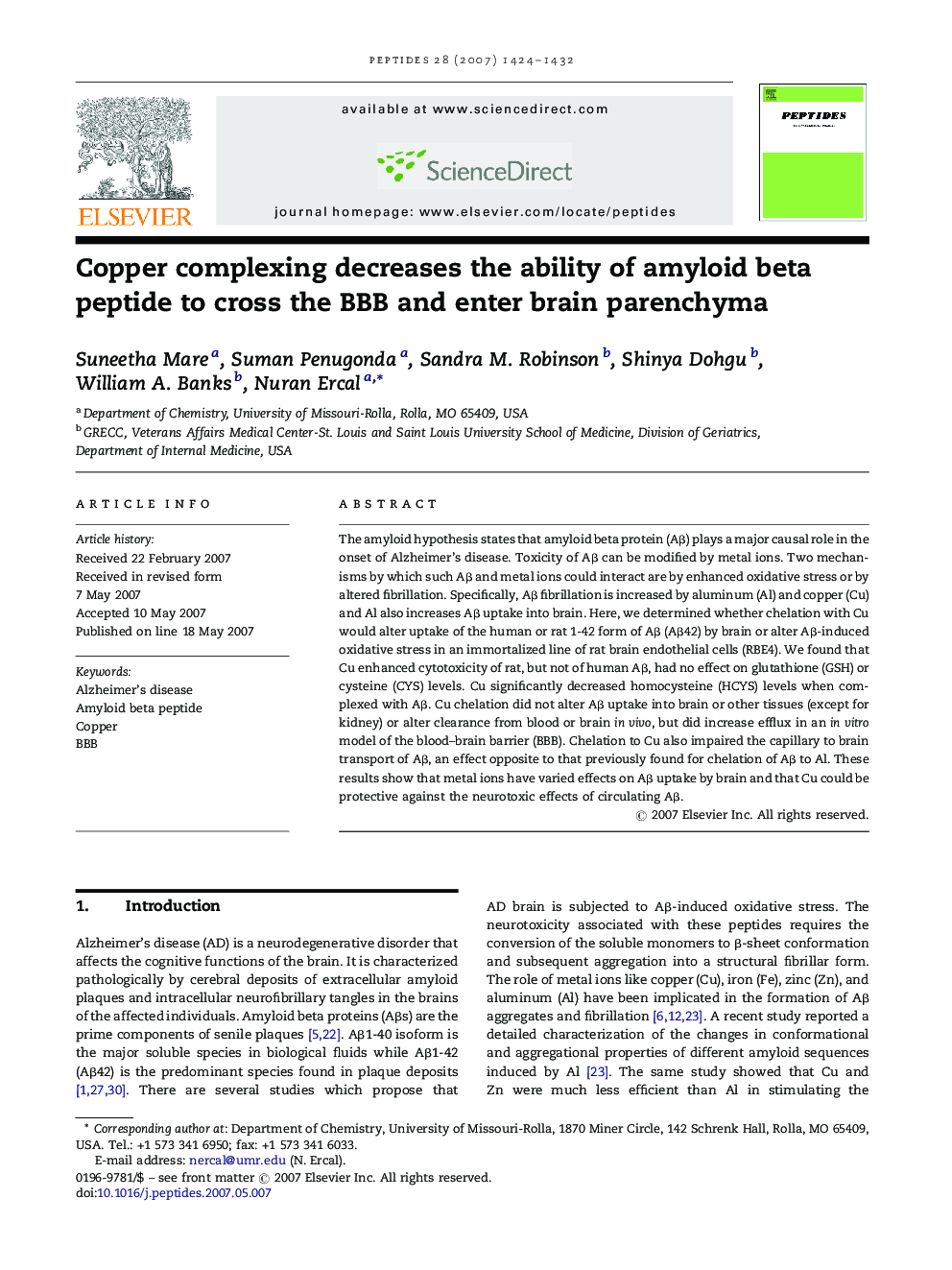| کد مقاله | کد نشریه | سال انتشار | مقاله انگلیسی | نسخه تمام متن |
|---|---|---|---|---|
| 2008020 | 1066393 | 2007 | 9 صفحه PDF | دانلود رایگان |

The amyloid hypothesis states that amyloid beta protein (Aβ) plays a major causal role in the onset of Alzheimer's disease. Toxicity of Aβ can be modified by metal ions. Two mechanisms by which such Aβ and metal ions could interact are by enhanced oxidative stress or by altered fibrillation. Specifically, Aβ fibrillation is increased by aluminum (Al) and copper (Cu) and Al also increases Aβ uptake into brain. Here, we determined whether chelation with Cu would alter uptake of the human or rat 1-42 form of Aβ (Aβ42) by brain or alter Aβ-induced oxidative stress in an immortalized line of rat brain endothelial cells (RBE4). We found that Cu enhanced cytotoxicity of rat, but not of human Aβ, had no effect on glutathione (GSH) or cysteine (CYS) levels. Cu significantly decreased homocysteine (HCYS) levels when complexed with Aβ. Cu chelation did not alter Aβ uptake into brain or other tissues (except for kidney) or alter clearance from blood or brain in vivo, but did increase efflux in an in vitro model of the blood–brain barrier (BBB). Chelation to Cu also impaired the capillary to brain transport of Aβ, an effect opposite to that previously found for chelation of Aβ to Al. These results show that metal ions have varied effects on Aβ uptake by brain and that Cu could be protective against the neurotoxic effects of circulating Aβ.
Journal: Peptides - Volume 28, Issue 7, July 2007, Pages 1424–1432